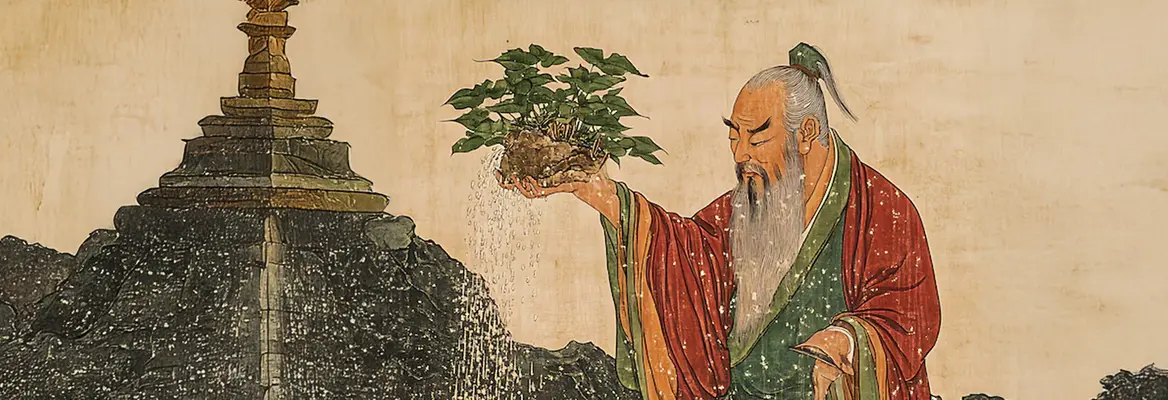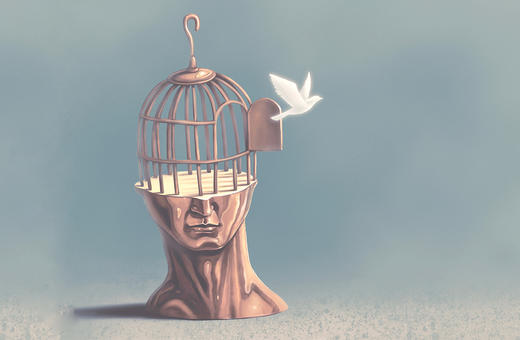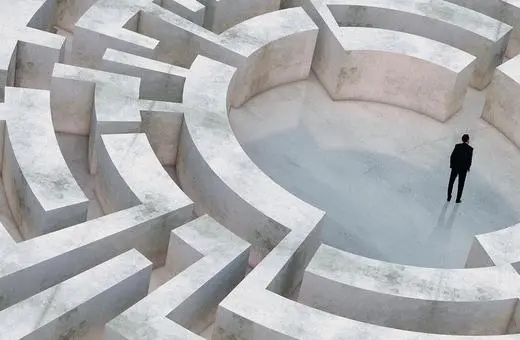Chinese philosophy offers a radical rethinking of human action, not as an outcome of the self’s conscious deliberation, but as a spontaneous, effortless process, utterly in tune with nature. Daoist texts like the Zhuangzi describe agency without a reflective self—no weighing options, no detached rationalizing. Philosopher of cognitive science Brian Bruya argues that this Chinese vision not only captures how we experience our actions, but also more deeply resonates with breakthroughs in recent cognitive science than the Western ideal of action as the product of reasoned choice, which is rooted in mistakes that go all the way back to Aristotle.
Human action is part of nature
A tree branch falls on you. You don’t blame the tree. A stranger pushes you over. You sue.
The classic approach to this difference in attitude is to view nature as determined (and therefore blameless) and humans as free (and therefore accountable for their actions).
Consider for a moment two more scenarios. Kenneth Parks was acquitted of beating and stabbing his mother-in-law to death because he was sleepwalking at the time. If Parks was truly unconscious, then his lack of culpability is understandable. But what about athletes, musicians, and artists, who claim that they attain heights of achievement while “unconscious,” in so-called “flow states”? Should we refrain from giving them awards? Of course, they are not asleep, but descriptions of their states of mind are eerily similar: “my body just moved, “there was no me there,” “the piano played itself.” Are these just clumsy descriptions, or is there something to the idea that the “I” of human action is more complicated than it seems?
 SUGGESTED READING
Memory creates reality and the self
By Michael Hornberger
There is clearly something wrong with the freedom/determinism dichotomy, for human beings are fundamentally natural creatures. The principles that apply to motion in nature must also apply to us. Until now, however, and despite a plethora of so-called compatibilist theories, such a unifying principle has escaped both scientists and philosophers, at least in the Western tradition that descends from Aristotle. But the Daoists of ancient China, in their many discussions of skilled action, may provide a way out of this paradox.
SUGGESTED READING
Memory creates reality and the self
By Michael Hornberger
There is clearly something wrong with the freedom/determinism dichotomy, for human beings are fundamentally natural creatures. The principles that apply to motion in nature must also apply to us. Until now, however, and despite a plethora of so-called compatibilist theories, such a unifying principle has escaped both scientists and philosophers, at least in the Western tradition that descends from Aristotle. But the Daoists of ancient China, in their many discussions of skilled action, may provide a way out of this paradox.
There was once a man who made his living catching cicadas with a pole. After much practice, he said, his body was still and, “despite the expansiveness of the world and the multitudes of things in it, all I see are the cicada wings and nothing else can distract me from them.”
This story comes from the Zhuangzi, a foundational work of Daoism named after its author, and resembles many other stories about advanced skills. The point we can take from this story is an association between ideal action and concentrated attention. In a story about a man who uses wood to make stands for large bronze bells, we learn that in order to find the perfectly shaped wood in the forest, he frees his mind from all competing thoughts, such as reward and reputation. In another story about a swimmer in roiling water, we learn that he is responsive to his immediate environment. In a story about the pilot of a boat, we learn that ease is a key descriptor of his movement.
___
Zhuangzi viewed human beings as of a piece with nature, and when it came to conceptualizing ideal action, his solution was to look toward nature rather than away from it.
___
All of these stories, and more, provide us with a sketch of the basic qualities of skilled, effortless action, which Zhuangzi sums up in one sentence: “With one’s body whole and one’s seminal energy restored, become one with nature.”




















Join the conversation